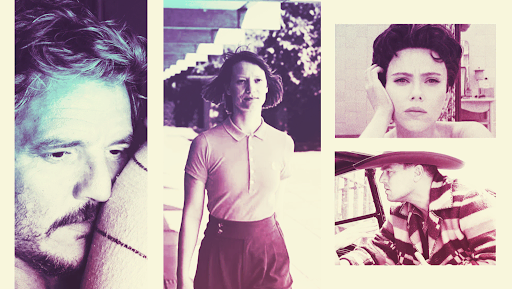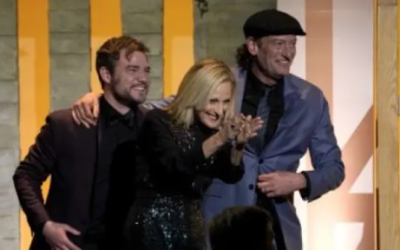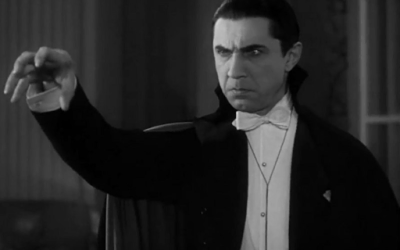Source: IndieWire
With the Writers Guild of America going on strike and bringing most, if not all, of the American film industry to a halt, the state of cinema is far from ideal at this moment in time, at least as far as those who have the most to gain from this business are concerned. Until a satisfactory resolution can be achieved and productions can resume as originally planned, many filmmakers and studio heads are in need of relief to ease the stresses they are most likely experiencing. Luckily for them, an event that has great potential to take these people’s troubles off their minds has just begun all the way on the other side of the Atlantic Ocean, specifically near the beaches of the French city of Cannes. For the seventy-seventh time in its decades-long history, the Cannes Film Festival, one of the most prestigious international film-going events in the world, is underway, having begun on Tuesday, May 16th and continuing until Saturday, May 27th. This twelve-day period will see an impressive array of feature-length and short films shine on the big screen and vie for the favors of those who may think of them as incredibly lucrative in terms of critical and commercial reception (assuming they don’t already have the backing of a major studio and/or distributor). With the current WGA Strike making it difficult to focus on any mainstream productions that are meant to be taking place right now, studios will most likely be extra attentive as to which films they may want to acquire and push towards possible success, and there’s fortunately quite a bit to choose from the selection this year’s festival has opted to showcase. One would think that it would be impossible to highlight a limited number of them given the size and quality of the line-up, but while that’s true to some extent, there are those that do fare better at standing out than others. These are some of the few (but far from the only ones) that proved most successful in grabbing attention:
Asteroid City – there are few current filmmakers with such an immediately distinctive style quite like Wes Anderson, whose trademark for quirky and unconventional stories told using symmetrical and pastel-colored imagery allow audiences to identify his works with great ease. His latest cinematic endeavor, centered around a fictional American town from which it receives its title, appears to be firmly in line with the style Anderson has become so famous for, which bodes well for those eager to see how the writer/director handles this 1950s period piece involving the town’s unusual encounter with what seems to be an extraterrestrial being. With an ensemble cast that includes Anderson regulars like Jason Schwartzman and Tilda Swinton, as well as the less frequent Tom Hanks and Margot Robbie, it’s safe to say that Cannes audiences will be looking to the stars in more ways than one when it comes to this film.
Club Zero – Austrian filmmaker Jessica Hausner is no stranger to the Cannes Film Festival (with her previous feature, the 2019 film “Little Joe” premiering at the festival and earning lead actress Emily Beecham its Best Actress award), so it’s safe to say that she’s more than ready to wow audiences yet again with her latest cinematic creation. On the surface, the film certainly sounds promising enough, as it focuses on a young prep school teacher (played by Mia Wasikowska of “Alice in Wonderland” and “Crimson Peak” fame) bonding with her students in a way that may prove to be of great detriment to their health and wellness. Hausner alleges that the film will put great emphasis on eating behaviors and disorders that are all too common in the modern world, which would potentially allow its themes to be of great weight and relevance to many Cannes attendees. If it’s able to handle them well enough, this could be another winner for Hausner.
Killers of the Flower Moon – if there are any terms that can immediately grab a cinephile’s attention, they are “Martin Scorsese” and “three-hour epic”, both of which can apply to the latest directorial effort from the filmmaker behind “Taxi Driver”, “Goodfellas”, and countless other cinematic classics. Two of Scorsese’s favorite actors to work with, Robert De Niro and Leonardo DiCaprio, headline the 1920s-set film, based on a bestselling work of nonfiction by David Grann, as an uncle-nephew duo wrapped up in a conspiracy to steal the land of the Osage Nation people in an attempt to harvest its oil and obtain great wealth. Apple TV+ and Paramount Pictures, the film’s chief distributors, currently plan to put Scorsese’s film into wide release in October of this year, and with a budget of over $200 million, the film will need all the attention it can get in order to make a profit. If all goes well at Cannes though, success may be within reach.
May/December – films about the process of filmmaking are quite popular among the cinematic creative community, and it’s not difficult to see why, as there are aspects about these particular stories that most of these people will relate to. When it comes to Todd Haynes’ latest film, the focus in on how an actor attempts to get into character when playing a person who actually existed in real life, as Natalie Portman stars as Elizabeth, a young Hollywood actress who travels to the South to visit Julianne Moore’s Gracie, a woman who gained nationwide notoriety for her relationship with a man over two decades younger than her. What begins as an actress’ efforts to immerse herself in the role she’s been cast to play spirals into a chaotic mess that threatens the sanctity of Gracie’s family and forces both women to reflect upon how similar they truly are, a situation that may end up hitting a bit too close to home for some actors.
Strange Way of Life – before Ang Lee was hired on to direct the 2005 western romance “Brokeback Mountain”, Spanish director Pedro Almodóvar considered helming the production himself, but ended up turning it down out of concerns that his creative freedom would be too limited for his liking. Nearly twenty years later, Almodóvar has been given another chance to create a queer western, this one (his second-ever English-language production) centered on two middle-aged men (played by Ethan Hawke and Pedro Pascal) who reunite after a twenty-five year separation. In describing the film, Almodóvar claims the film has all the trademarks of the western genre – the gunslinger, the sheriff, and so forth – but puts its central romantic leads front and center in a way not commonly seen in the typical western. “There are two men,” Almodóvar explains, “and they love each other, and they behave in that situation in an opposite way.”




